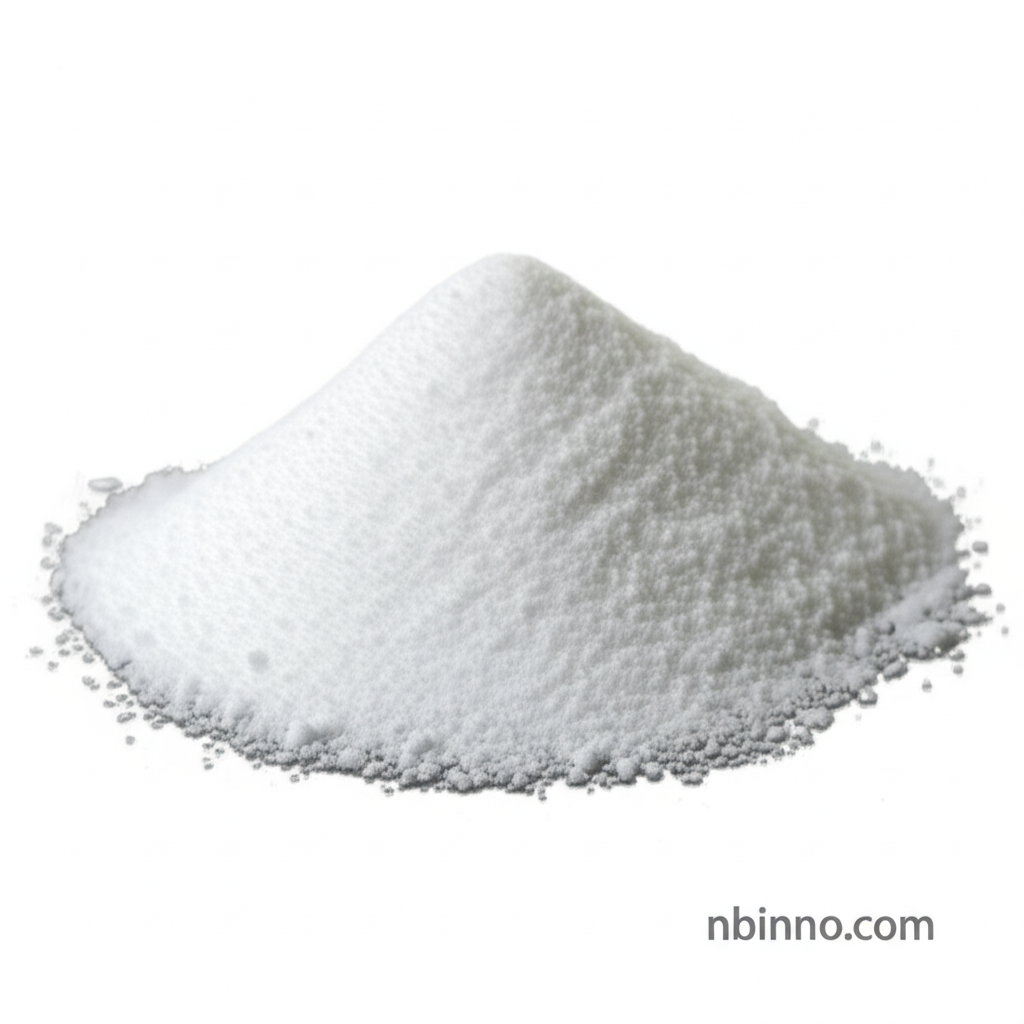Triphenylmethyl Chloride (CAS 76-83-5): A Versatile Pharmaceutical Intermediate and Protecting Agent
Explore the critical role of Triphenylmethyl Chloride in organic synthesis and pharmaceutical applications.
Get a Quote & SampleProduct Core Value

Triphenylmethyl Chloride
Triphenylmethyl Chloride (CAS 76-83-5) is a highly versatile chemical compound recognized for its utility as a pharmaceutical intermediate and a key protecting agent in complex organic synthesis. Its unique molecular structure and steric hindrance provide excellent selectivity when used for the protection of amines, carboxylic acids, and alcohols.
- Leverage Triphenylmethyl Chloride as a protecting agent for amines and carboxylic acids, ensuring precision in organic synthesis.
- Utilize Triphenylmethyl Chloride in the synthesis of antiviral drugs, contributing to advancements in medicinal chemistry.
- Explore the application of Triphenylmethyl Chloride as an initiator for resin polymers and an organic reaction catalyst.
- Benefit from its use as a versatile intermediate for dyes, pesticides, and other fine chemicals, showcasing its broad applicability.
Key Advantages of Using Triphenylmethyl Chloride
High Steric Hindrance
The significant steric hindrance offered by Triphenylmethyl Chloride ensures good selectivity when protecting functional groups like amines, carboxylic acids, and alcohols in complex chemical structures.
Versatile Intermediate
As a critical pharmaceutical intermediate, it plays a vital role in the synthesis of various active pharmaceutical ingredients (APIs), including cephalosporins and antiviral drugs.
Broad Industrial Applications
Beyond pharmaceuticals, Triphenylmethyl Chloride finds use in the production of dyes, pesticides, as a resin polymer initiator, and an organic reaction catalyst, highlighting its extensive industrial utility.
Key Applications
Amine Protection
Triphenylmethyl Chloride is highly effective in protecting amine groups during complex organic synthesis, a critical step in developing many pharmaceutical compounds.
Carboxylic Acid Protection
It serves as a reliable reagent for protecting carboxylic acid functionalities, ensuring their integrity throughout multi-step synthetic pathways.
Alcohol Protection
The compound's steric bulk makes it an excellent choice for protecting alcohol groups, preventing unwanted reactions during synthetic transformations.
Pharmaceutical Synthesis
As a vital pharmaceutical intermediate, it is instrumental in the synthesis of various drugs, including antiviral agents, underscoring its importance in medicinal chemistry.
